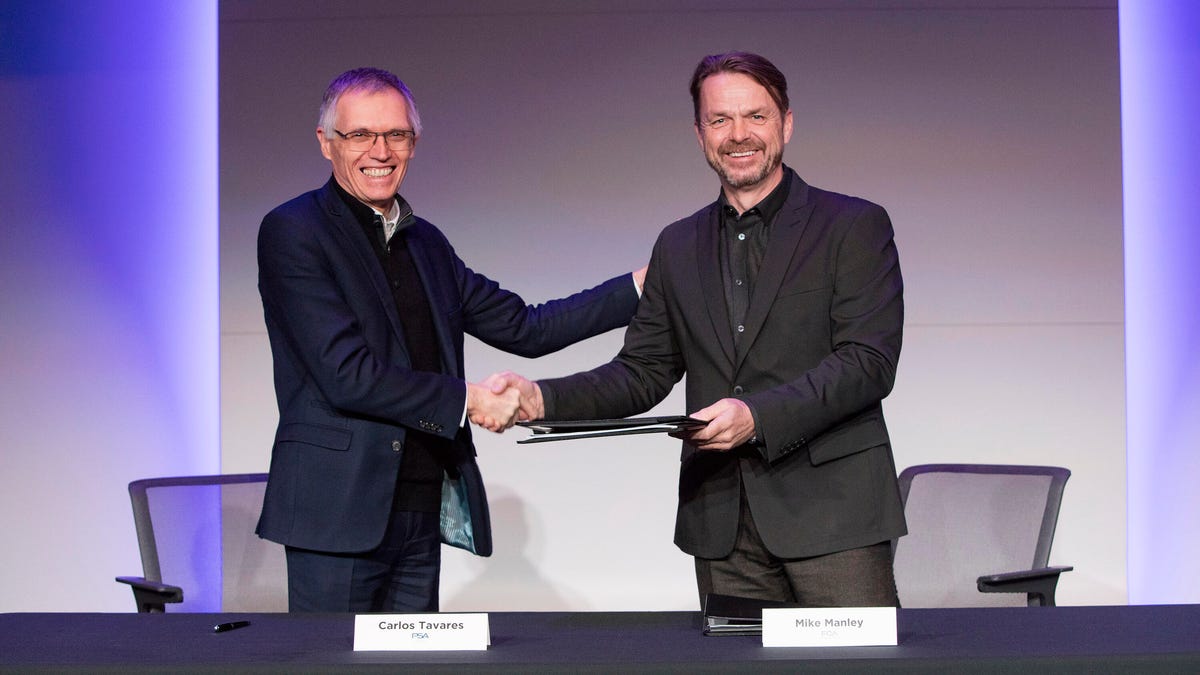Fiat Chrysler and PSA Group make merger official, become 4th largest automaker
The automakers signed a binding agreement to create a 50/50 merger, which should be complete in the next year or so.

The deal is done.
Ladies and gents, meet the world's fourth largest automaker by volume, and third largest by revenue. We don't have a name for this new company, but Fiat Chrysler Automobiles and PSA Group are now one.
Wednesday brought the details of the 50/50 merger plan as the automakers' chief executives signed a binding agreement to merge their entities. FCA, an Italian-American automaker, and PSA Group, the French conglomerate that includes Peugeot , Citroën and Opel, expect the merger to complete in the next 12 to 15 months.
Before then, the automakers will need to earn the blessing of European and American regulators.
The merger is effectively a plan to save money. FCA and PSA expect to see synergies that result in savings worth $4.1 billion a year. The toughest task will be to meet the promises both FCA CEO Mike Manley and PSA CEO Carlos Tavares delivered when announcing the merger intention: There will be no need to close factories. Manley will lead the combined automaker as the group's chairman, while Tavares will serve as the new company's CEO.
Combined, the company will have annual sales of 8.7 million vehicles across global markets and nearly $190 billion in revenue. These figures come from both companies' latest financial figures combined. The bigger news will be major platform consolidation.
The two automakers said greater savings will come from delivering two-thirds of their future cars on just two vehicle architectures. Combining resources for engine families, technology and other R&D areas will contribute to extended cash flow. The savings will be used to invest in future technologies like electric powertrains and autonomous driving.
These are only the basic details so far. Over the course of 2020, we'll definitely hear more about what this means for US car buyers, FCA vehicle owners and perhaps accelerated prospects of Peugeot returning to the US. And at last, the late Sergio Marchionne finally got his wish.

